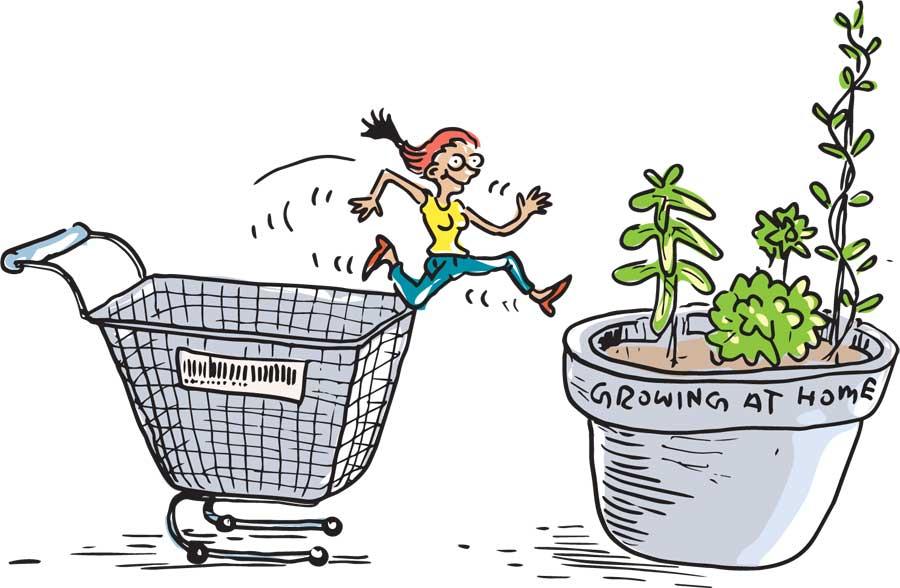Let’s return to our saving habits - EDITORIAL
10 April 2020 02:24 am Views - 777

Sri Lankans are experiencing a shortage of food due to the present crisis that has surfaced due to the COVID-19 pandemic. Though there are speculative stories circulating that vegetables might rot at the economic centres in the island nation, the regime had to take a firm decision to shut down these facilities because people didn’t adhere to health regulations.
What we are seeing today is a total waste of the food that we grow. Such a situation would have been unheard of in the past because this is a nation where its people knew how to save food and money to survive difficult times.
Sri Lankans are rice eaters; saying that our staple food is rice will have no punch in it. The present generation might stuff up on rice and lead sedentary lifestyles as opposed to the people of yonder who burned all those calories through active agriculture practices.
Ancient Sri Lankans thought of a tomorrow; a future which might take into consideration adverse developments like floods and famine. We can learn from the farming community of yesteryear about how to save. These farmers used a paddy storage tool called the ‘vee bissa’-where paddy was stored for future consumption and cultivation. Back in the good old days the number of ‘vee bissas’ owned by a person indicated an individual’s wealth and influence in the society. Those who had such facilities were in demand in the marriage market. Today the habit of saving has been sent into oblivion by some sections of the society because credit cards have given people supreme buying power. If credit cards have given customers something handy they have taken away something of huge importance, the habit of saving. The farming community which used this tool to save their produce never knew of a common problem which exists at present which is the shortage of paddy storage space.
When we look at the many irrigation tanks which are still around we can see that our ancient kings didn’t waste a drop of water which fell on our soil. Water cuts were unheard of then because people stored water and also dug wells in their premises for daily use. Ancient Sri Lankans boasted of being a hydraulic civilization and their lives were associated with these tanks.
Just about a year ago we had a shortage of rice at supermarkets. There are stories of there being a mafia in the rice industry. The paddy mill owners are calling the shots and there are times when the government is also helpless when there is a shortage of rice.
There was a time when ancient Sri Lanka was known to be self-sufficient and this was when ‘chena’ cultivation thrived in the country. For the record, this type of cultivation has a history spanning over 5000 years and is termed as the oldest form of cultivation in the island.
Apart from battling the COVID-19 virus another concern we have is about how to celebrate the upcoming Sinhala-Tamil New Year. We do have shortages of certain food items and our new year tables might not be that impressive as a result. But on a positive note we can concentrate on making some selected sweetmeats at home. Such home products might be cherished more than the products that we buy at supermarkets and put on the table.
During the Premiership of Sirimavo Bandaranaike Sri Lankans were taught the habit of cultivating on their plots of land. The concrete jungles we live in today don’t support this philosophy of ‘growing at home’. But now it seems that as a result of COVID-19 people have started to seriously consider growing some vegetables at home. Some have already got a head start to growing at home.
The pandemic would vanish one day and life would return to normal. We would have derived something positive out of this negative situation if we return to our saving habit.